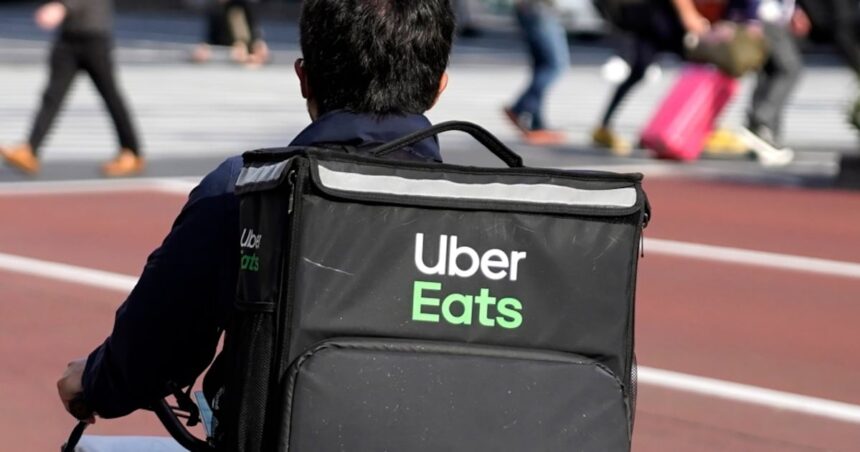In a significant development that could impact millions of Canadian consumers, Uber Eats Canada faces a proposed class-action lawsuit over allegations of deceptive “drip pricing” practices that potentially mislead customers about the true cost of food delivery services.
The legal challenge, filed in Ontario Superior Court, accuses the food delivery giant of systematically obscuring additional fees until late in the checkout process, a practice that critics argue artificially deflates the advertised prices consumers initially see when browsing restaurants.
“What we’re seeing is a classic case of bait-and-switch marketing that ultimately harms both consumers and competing businesses,” said Regina-based consumer rights attorney Melissa Harrison, who is representing the plaintiffs. “Canadians deserve transparency when making purchasing decisions, especially for everyday services like food delivery.”
At the heart of the lawsuit is the claim that Uber Eats engages in “drip pricing” – a controversial marketing tactic where additional mandatory charges are gradually revealed throughout the purchasing process rather than being clearly disclosed upfront. The practice effectively masks the true cost until consumers have already invested time in the ordering process, making them less likely to abandon their purchase despite the higher-than-expected final price.
Court documents obtained by CO24 reveal that plaintiffs are seeking damages in excess of $50 million, alleging violations of provincial consumer protection laws across multiple jurisdictions in Canada. The lawsuit further claims that these pricing practices have been systematically implemented since at least 2018.
Consumer advocacy groups have long criticized the food delivery industry for what they describe as a lack of pricing transparency. A recent study by the Consumers Council of Canada found that final delivery costs can be up to 40% higher than the prices initially displayed to users when they first browse restaurant options.
“This isn’t just about a few extra dollars on your burger order,” explained Dr. Thomas Chen, professor of business ethics at the University of Toronto. “It’s about fundamental market fairness and whether companies have a responsibility to be transparent with consumers from the start of the transaction process.”
The proposed class action seeks to represent all Canadian consumers who have used Uber Eats services since January 2018. If certified by the courts, it could potentially include hundreds of thousands of users across the country.
In response to the lawsuit, Uber Eats Canada provided a statement to CO24 indicating that the company believes its pricing is “transparent, competitive, and in full compliance with all applicable Canadian laws and regulations.” The company spokesperson added that “all fees are clearly displayed before customers confirm their orders.”
However, internal documents cited in the lawsuit suggest Uber’s own research showed increased conversion rates when certain fees were revealed later in the purchasing process – evidence the plaintiffs claim demonstrates a deliberate strategy to obscure true costs.
The legal action comes amid growing regulatory scrutiny of digital platforms both in Canada and globally. Last year, the Competition Bureau of Canada launched a market study into online delivery platforms, examining issues including pricing transparency and competitive practices.
Similar class actions against food delivery services have gained traction in other jurisdictions, including a 2021 settlement in the United States where DoorDash agreed to pay $2.5 million to resolve allegations of deceptive fee practices in Washington, D.C.
As Canadian consumers increasingly rely on delivery services, particularly since the pandemic accelerated adoption of these platforms, the question remains: will this legal challenge fundamentally change how delivery apps disclose their pricing, or will consumers continue to face unexpected costs at checkout?










